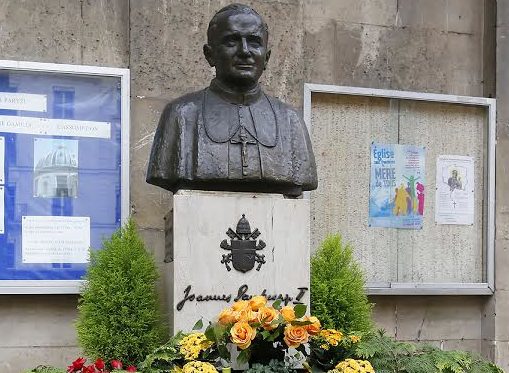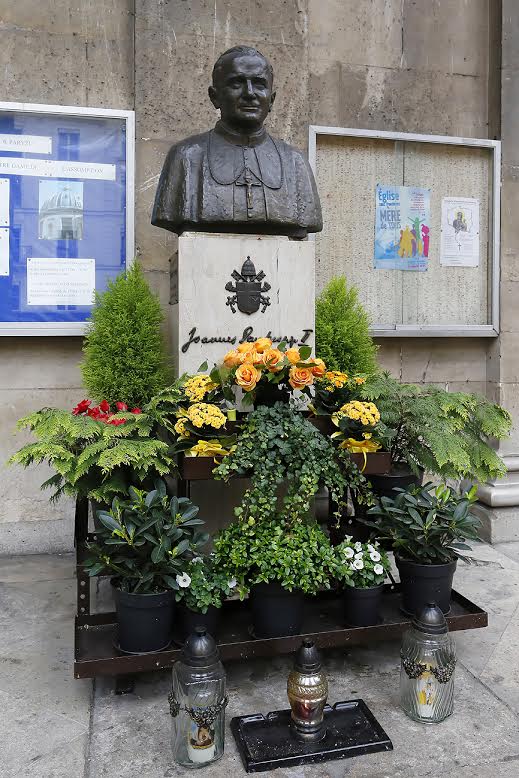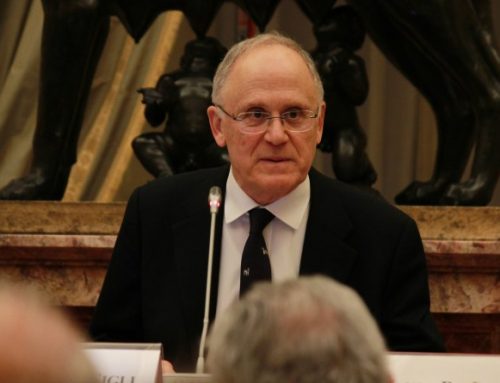On the occasion of the 25th anniversary of the election to the Pontificate of the Holy Father John Paul II, FIAMC deemed it appropriate to underline the important event with a tool able to convey the word of the Pope on issues concerning health, life, health care assistance, biomedical sciences, bioethics, and profession to doctors and the other health care workers.
The idea was thus born of a CD-Rom which would contain all the speeches, letters and messages by the Pope on the issues mentioned above, besides the official documents of the Magisterium directly related to medical doctors and the other health care professions.
We therefore collected in a single work of reference the numerous materials produced during the 25 years of the Pontificate, in the midst of events which not only marked world history, but were also responsible for deep transformations in science and in medical practice.
Since October 16th 1978, in the middle of the winds of stormy changes, John Paul II has been the helmsman which leads with steadfast hand Peter’s boat towards the open sea: Duc in altum!
In the course of the past 25 years the word of the Pope has been a constant point of reference for medical doctors and the whole world of health.
We appreciated the abundance of his Magisterium on the issues related to our profession, starting from “Salvifici Doloris”, the first pontifical document on the theological value of suffering, and from the great Encyclical “Evangelium Vitae“, a true magna charta for all those who put their profession at the service of human life.
We admired his love for the sick in the many meetings he had with the sick and disabled and in the visits to Hospitals in Rome and in many parts of the world.
We rejoiced in receiving the motu proprio “Dolentium Hominum” with which, for the first time in the history of the Church, an organic and coordinated work was started on a world wide scale in the field of the Health Pastoral, and the motu proprio “Vitae Mysterium”, with which the Pontifical Academy for Life was established.
We were filled with joy also at seeing him raise to the honour of the altars some significant figures of doctors of the present day, such as Giuseppe Moscati, Riccardo Pampuri, Gianna Beretta Molla.
We participated, in the course of the last few years, in the celebration of the Day of the Sick, in the dioceses and on a world scale, contributing to give life to a positive intuition of his, intending to bring to the attention of the authorities, of public opinion, and of the Church the suffering man, icon of Christus patiens.
We received from the Pope, in the course of the Great Jubilee of the year 2000, the Prayer of the Doctor, which we had asked and which was specifically composed for us, daily source of inspiration and comfort in the hardships and dilemmas of the profession.
Above all, the Holy Father has been for us a Teacher on the desk of suffering, since the days when someone attempted to take his life in 1981, when, together with so many people from all over the world, we prayed that Divine Providence and Mary’s intercession could save his life for the good of the Church, and, thanks to God, our prayers were answered.
Personally, as a specialist in Neurology, I was taught every day by the strength, dignity and serenity with which he faced the illness that has been a companion for him during the last years.
These few words are sufficient to point out the great and lasting attention that the Pope has paid in these years of Pontificate to the issues of medicine.
However, it is only by going back and reading his speeches and writings that it is possible to fully grasp the love and esteem with which he has surrounded our profession.
A love and an esteem which are certainly due to his awareness that the problems of birth, of suffering and of death are at the center of man’s religious experience and that the way in which they are faced is the measure to evaluate the level of civilization of human societies.
They are, however, also the esteem and love which come from a man who is personally deeply marked by the experience of suffering and is able, therefore, to fully appreciate the value of the medical art and the importance of health care and of scientific and biomedical research.
The CD-Rom is a witness of this love and esteem.
We wish to make this disk an instrument of study, research and consultation. In fact, we hope that its use will not only allow doctors and other health care workers to reflect upon the words of the Pope, meditating upon them, but also be useful in the preparation of texts and interventions which can find in the Magisterium of the Pope an authoritative point of reference on the issues of human health.
In order to facilitate its consultation, the CD, published today in the English and Italian languages, hoping however there will be a second version including other languages, has an inner search function which allows you to individuate texts according to their title, occasion and date. Moreover, thanks to its Word format, it is possible to search for single words or lines of text.
The documents which are present in only one of the two languages are very few. We hope to fill this gap in the next version.
The CD also provides several colour photographs and brief videos which allow you to see and listen to the Pope during some significant events referred to in the texts.
The making of this CD was particularly difficult due to the lack of one source only. It was therefore necessary to search many internet websites, starting from that of the Holy See, all the available CDs containing the archive editions of the Osservatore Romano, the Italian National Library, the journal “Dolentium Hominum”. To all these sources, and especially to the Osservatore Romano, we address our heartfelt thanks.
The making of such work would not have been possible without the cooperation, in the search for texts, of many people whom I wish to thank individually.
First of all I wish to thank Prof. Domenico Di Virgilio, President of the Italian Catholic Medical Association (AMCI), and Prof. Agostino Maltarello, who is the only living founder of that Association. They made available the texts gathered for a book published in Italian, which provided most of the texts in the Italian language. The remaining documents in Italian and all those in English are fruit of the research work carried our by the PIME seminarist Dario Semino, by Ms. Isabelle Biondi, Executive Director of FIAMC in Rome, by Ms. Giovanna Barbetti from Udine, by Fr. Walter Black and Dr. Michael Shanahan from Perth, Australia, and by Dr. George Isajiw from Philadelphia, Pennsylvania.
We obtained some of the materials related to Pharmacists thanks to the President of FIPC, Prof. Alain Lejeune. I also wish to sincerely thank S.E. José Redrado, Secretary of the Pontifical Council for Health Pastoral Care, for having helped in the research of texts published in “Dolentium Hominum”; and Fr. Pascual Piles, Superior General of the Brothers of St. John of God.
Very special thanks to Ms. Francesca Leita, who with competence and dedication carried out all the editing work, besides participating in the search of texts.
The videos present in the CD were kindly provided by CTV (Vatican Television Centre) which we thank for the collaboration offered.
This work would not have been possible without the computer science know-how of Mr. Mauro Nascimben, who created the research engine and handled the production of the disk.
I would also like to thank H.E. Msgr. Elio Sgreccia, Vice-President of the Pontifical Academy for Life, for having honoured with his preface this work and for the nice words of appreciation that he had for FIAMC. We are proud to have been working close to him in the course of the past years, at the service of the Church and of medical ethics.
The intelligent and dedicated work of many people notwithstanding, this work would not have been published without the generous support of the Pfizer Foundation (Italy). Special thanks to the President of the Pfizer Foundation, Dr. Maria Pia Ruffilli, for having understood the meaning and spirit of the initiative and having accepted to support it in the interest of the medical profession.
Finally, many thanks to my wife Maria Rosaria, for the uderstanding she showed during the preparation of this work, forgiving the time I was not with her and our five children. I think that only her love, her devotion for the Holy Father John Paul II, and the fact that she also is a medical doctor allowed her to tolerate my absence from the family.
Gian Luigi Gigli, MD
President of FIAMC (1998-2006)










